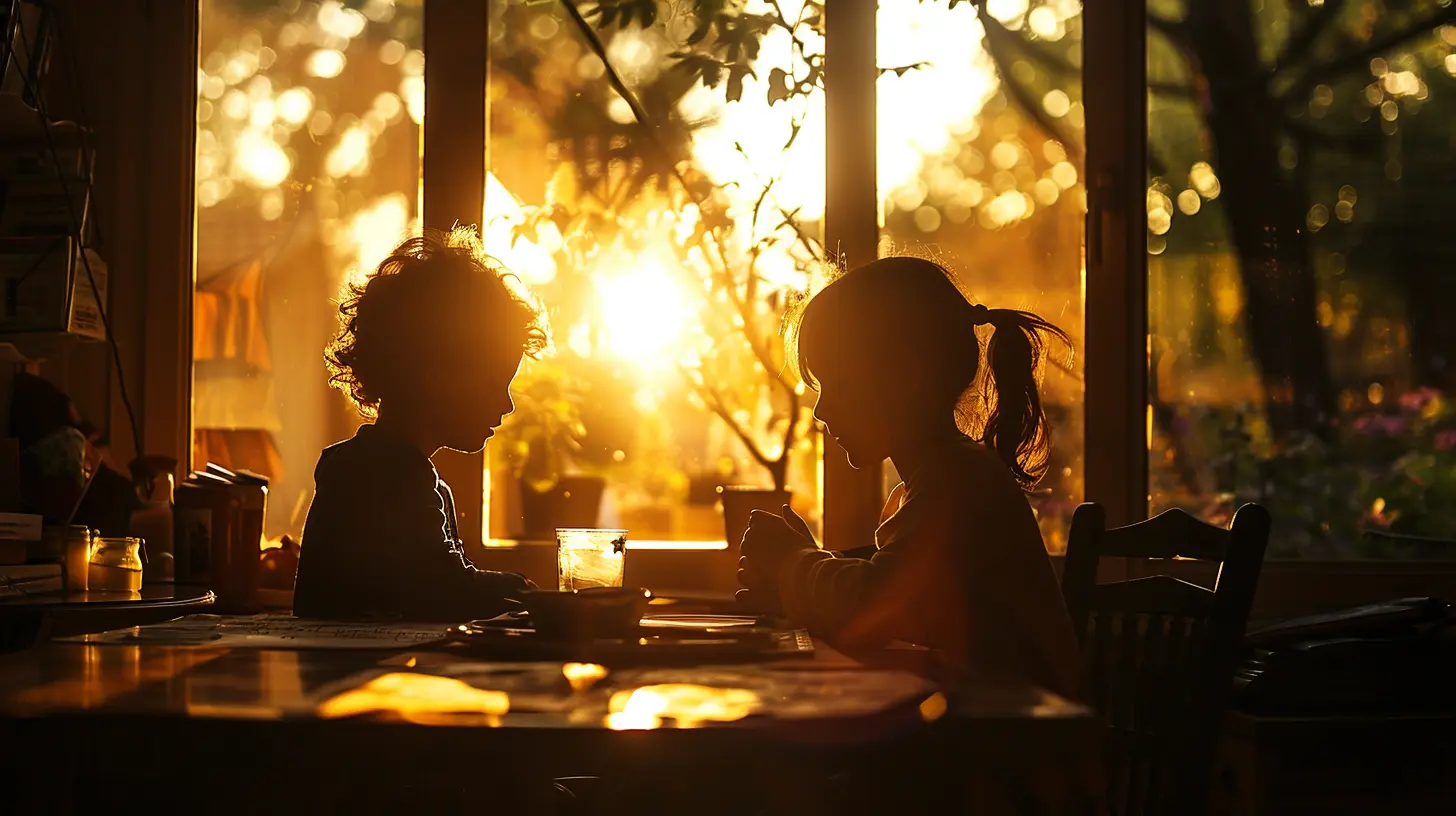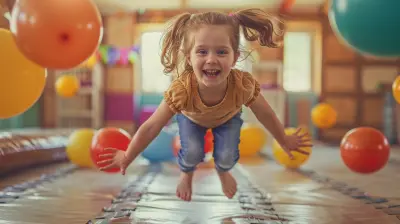Unschooling: A Child-Led Alternative to Traditional Homeschooling
5 May 2025
Parenting is full of decisions—some easy, some hard, and some that make you question everything you thought you knew. One of the biggest choices parents face today is how to educate their children. While traditional schooling works for many, more families are seeking alternatives that better fit their child's unique learning style.
One such alternative? Unschooling.
It’s not just homeschooling—it’s a complete mindset shift. Instead of structured lessons and rigid curriculums, unschooling lets kids take the lead in their own education. Sounds unconventional? Maybe. But for many families, it’s life-changing. 
What Is Unschooling?
Unschooling is an educational approach that ditches the traditional classroom structure and embraces child-led learning. There are no formal lessons, no tests, and no rigid schedules. Instead, kids learn through real-life experiences, curiosity-driven projects, and hands-on exploration.Think about how toddlers learn to talk. Do they sit through grammar lectures? Of course not! They absorb language naturally by hearing, mimicking, and experimenting. Unschooling applies that same principle to learning everything else. 
The Philosophy Behind Unschooling
At its core, unschooling believes that kids are natural learners. Given the freedom to follow their own interests, they’ll seek out knowledge organically. Instead of forcing a one-size-fits-all education, unschooling nurtures a child’s natural curiosity.This approach is deeply rooted in trust—trust that children will learn what they need to when they need to. Instead of telling kids what they should know, unschooling allows them to explore what they want to know. 
How Does Unschooling Work?
One of the most fascinating things about unschooling is that it doesn’t look the same for everyone. Each child’s learning journey is unique. But here are some key characteristics most unschooling families share:1. No Set Curriculum
Forget textbooks and standardized lesson plans. Kids learn through real-life experiences, books they love, hands-on projects, discussions, and personal exploration.2. Interest-Led Learning
Does your child love dinosaurs? Unschooling encourages them to dive deep—reading about them, visiting museums, drawing their own dinosaur species, or even writing stories. Every passion opens the door to multiple subjects without feeling like “school.”3. Learning Through Play
Play is a child’s first language. Whether it’s building with LEGOs, role-playing as a shopkeeper, or coding video games, play is a powerful learning tool.4. Encouraging Natural Curiosity
Instead of answering every “Why?” with a quick response, unschooling parents challenge kids to find out for themselves—through research, experiments, and hands-on experiences.5. Real-World Experiences
Learning doesn’t just happen at a desk. It happens in the kitchen, at the park, during road trips, in nature, and even in the grocery store. Life is the classroom.
The Benefits of Unschooling
There’s a reason more families are turning to unschooling—it works! Here’s why:1. Children Stay Passionate About Learning
Traditional school can sometimes kill a child’s love of learning with rigid subjects and endless testing. Unschooling keeps learning exciting because kids get to explore what genuinely interests them.2. Fosters Independence and Confidence
When children have the power to direct their own education, they become natural problem-solvers and critical thinkers. They take ownership of their learning, which builds confidence and independence.3. Personalized Learning at Its Best
Every child is different. Some love reading, while others learn best through hands-on work. Unschooling embraces these differences, allowing kids to absorb information in a way that suits them best.4. More Time for Real-World Skills
Instead of memorizing dates for a history test, unschooled kids might be learning how to cook, manage money, start a business, or code a website—skills that will genuinely help them in life.5. Stronger Family Bonds
With traditional school, parents and kids spend much of the day apart. Unschooling allows families to share more experiences and grow closer, strengthening relationships in the long run.Addressing the Common Concerns
“Will My Child Really Learn Everything They Need?”
Absolutely! The world isn’t divided into isolated subjects like school makes it seem. When kids follow their interests, they naturally encounter math, science, reading, and problem-solving along the way. Learning isn’t forced—it just happens.“What About College?”
Believe it or not, many unschooled kids go to college. Some take alternative paths, like starting businesses or becoming self-taught experts in their fields. Many universities welcome unschooled students because they are self-motivated, curious, and independent thinkers.“Isn’t Socialization a Problem?”
Not at all! Unschoolers interact with people of all ages—not just same-age peers in a classroom. They learn social skills naturally by being part of real-world activities, clubs, community projects, and homeschooling groups.How to Get Started with Unschooling
Interested in unschooling but don’t know where to begin? Here are some simple steps to help you get started:1. Shift Your Mindset
Let go of traditional school expectations. Unschooling isn’t about recreating school at home—it’s about embracing life as a limitless learning experience.2. Observe Your Child’s Interests
Pay attention to what excites your child. Do they love animals, space, music, or storytelling? Use their curiosity as a launching point for learning.3. Provide Resources, Not Rules
Instead of strict lesson plans, offer books, documentaries, art supplies, science kits, and opportunities for hands-on exploration. Let learning unfold naturally.4. Encourage Questions and Curiosity
Instead of giving direct answers, guide your child toward discovering answers themselves. Ask questions like, “What do you think?” or “How could we find out?”5. Connect with Other Unschooling Families
Finding a support network can make the transition easier. Look for unschooling communities online, join homeschooling groups, or attend meet-ups.Final Thoughts
Unschooling isn’t for everyone—but for families who embrace it, it can be a truly liberating way to learn. Instead of forcing a rigid education, unschooling allows kids to develop a deep love for learning that lasts a lifetime.Will there be challenges? Sure. But watching your child eagerly explore the world, ask thoughtful questions, and develop real-world skills? That’s priceless.
So, if you’re looking for a way to give your child freedom, flexibility, and a love for learning—unschooling might just be the perfect path for your family.
all images in this post were generated using AI tools
Category:
HomeschoolingAuthor:

Zelda Gill
Discussion
rate this article
4 comments
Sierra McVaney
Love this approach! Letting kids lead sparks creativity!
May 16, 2025 at 2:24 AM

Zelda Gill
Thank you! Encouraging kids to take the lead truly fosters their creativity and passion for learning.
Ryder Hahn
Unschooling empowers children to explore their interests freely, fostering independence and creativity. It’s a flexible approach that can lead to deep learning and joy in education.
May 13, 2025 at 4:29 PM

Zelda Gill
Thank you for your insightful comment! I completely agree that unschooling fosters independence and creativity, allowing children to pursue their passions and learn in a way that resonates with them.
Amy Sharpe
Love the concept of unschooling! It's inspiring to see child-led learning fostering curiosity and creativity. Great article!
May 13, 2025 at 2:32 AM

Zelda Gill
Thank you! I’m glad you found the article inspiring. Child-led learning truly empowers curiosity and creativity!
Ainsley Hurst
Unschooling fosters a child's natural curiosity and autonomy, empowering them to pursue interests at their own pace. However, it challenges traditional educational structures, raising questions about accountability, socialization, and learner outcomes in diverse environments.
May 8, 2025 at 3:24 PM

Zelda Gill
Thank you for highlighting the key aspects of unschooling! It's true that while it encourages curiosity and autonomy, it also poses important questions about accountability and socialization that deserve careful consideration.



